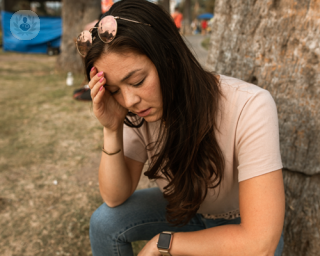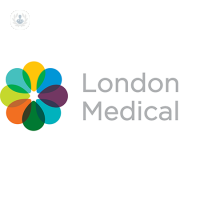Thyroid disorders
Dr Jeannie Todd - Endocrinology, diabetes & metabolism
Created on: 11-13-2012
Updated on: 06-11-2024
Edited by: Sophie Kennedy
What are thyroid disorders?
The thyroid is an essential gland in the body which produces thyroid hormones. These hormones control and influence many bodily functions, such as body temperature, energy levels, and metabolism.
Thyroid disorders occur for many different reasons and can disrupt the thyroid’s normal production of these hormones, with a knock-on effect on the body’s metabolic functions, causing adverse reactions. Thyroid disorders are relatively common and worldwide, they affect more women than men.
Specialist endocrinologists treat thyroid disorders but your GP may also be involved in your continued care plan. Some patients with thyroid disorders also see other specialists, such as ophthalmologists, if they are suffering with any complications of thyroid disorders.

What are the different types of thyroid disorder?
There are number of different disorders which can affect the thyroid and its related bodily functions.
- Hyperthyroidism, where the thyroid produces excess hormones, which can lead to Graves’ disease
- Hypothyroidism, where the thyroid produces too little hormone
- Hashimoto’s thyroiditis, an inflammation of the thyroid gland which can cause a goitre (swelling in the neck)
Thyroid tumours, non-cancerous nodules and adenomas, are another form of thyroid disorder which can also lead to hyperthyroidism. Additionally, cancer of the thyroid is a type of thyroid disorder. In almost all cases, thyroid disorders require routine care and monitoring or treatment by a specialist.
What are the symptoms of thyroid disorders?
There are many types of thyroid disorder, meaning there are also many different symptoms, which vary according to the kind of thyroid disorder the patient has. Thyroid conditions affect bodily functions and the metabolic system, so symptoms can include:
- weight gain or loss
- menstrual changes
- poor concentration
- nervousness
- feeling depressed
- fatigue
- feeling overly cold or hot, with excess sweating
- hair loss
- mood swings
- low sex drive
- arrhythmia
- protruding eyes
- goitre (swelling in the neck)
Symptoms vary depending on the type of thyroid disorder, and doctors will take a medical history and assess the symptoms displayed in order to correctly diagnose the type of thyroid condition affecting the patient.
What causes thyroid disorders?
Thyroid disorders can be caused in different ways, including related conditions such as autoimmune disease or inflammatory disorders, certain medication, radiation therapy (e.g. for cancer), pregnancy, iodine deficiency, and congenital disease.
There are various different causes and anyone can develop a thyroid condition. Some risk factors include:
- being a woman over the age of sixty
- having received radiation therapy in the neck or chest
- being pregnant or having had a baby in the last 6 months
- having an autoimmune disease
- having a family history of thyroid disorder
- having had thyroid surgery

Can thyroid disorders be prevented?
Thyroid disorders cannot really be prevented, but keeping the thyroid healthy is important and there are certain things you can do to reduce the risk. Cigarette smokers are more likely to develop thyroid eye complications related to Graves’ disease, and certain toxins in cigarettes can affect the thyroid, triggering thyroid disease. During X-rays, a special collar can be worn which covers the thyroid and reduces the chances of it being exposed to radiation.
How are thyroid disorders treated?
There are various treatments of thyroid disorders, as there are multiple types of condition and each case must be considered individually. In order to correctly diagnose the thyroid condition, a doctor must first investigate and take a medical history, and measure thyroid hormone levels. A medical evaluation is essential in order to assess what kind of care is needed.
Treatments include medication to lower, supplement or eliminate hormone production, and surgery to remove the thyroid gland which is sometimes indicated in those with cancer, or particularly large goitres.
When is surgery indicated?
Surgery is not always indicated for thyroid disorders and the best course of treatment will be determined on a case by case basis according to the patient’s specific circumstances and condition, as well as their symptoms and response to conservative treatment.
If your thyroid gland is overactive or has grown to be very large, has tumours, cysts or nodules, surgery to remove all or part of the thyroid gland may be indicated. Patients who undergo thyroid removal surgery will need to take certain forms of medication for the rest of their life, to substitute some of the original functioning which is lost when the gland is removed.
















